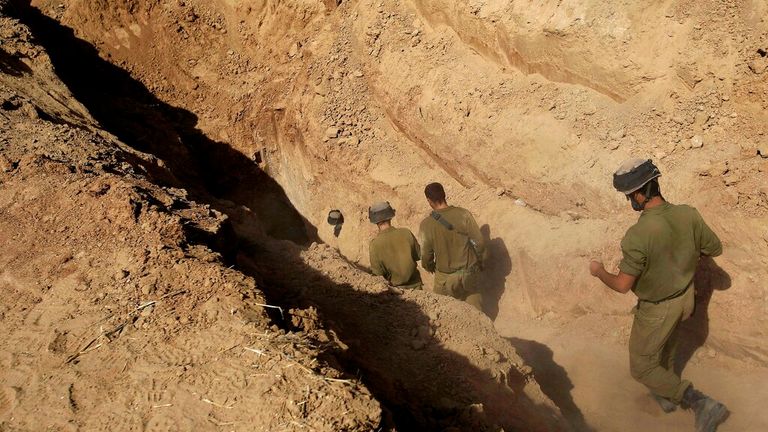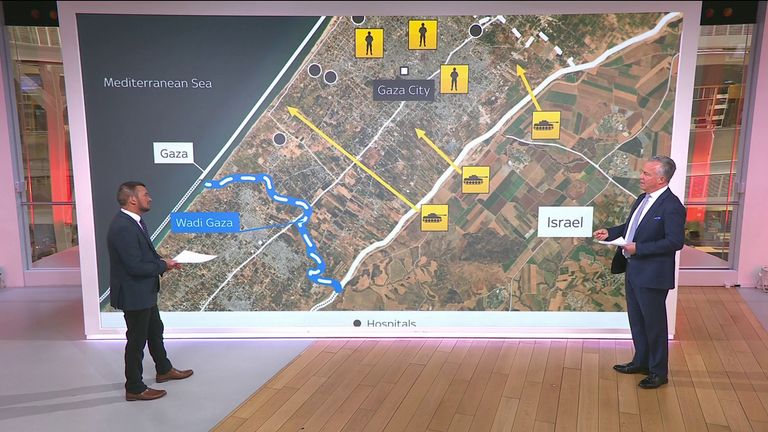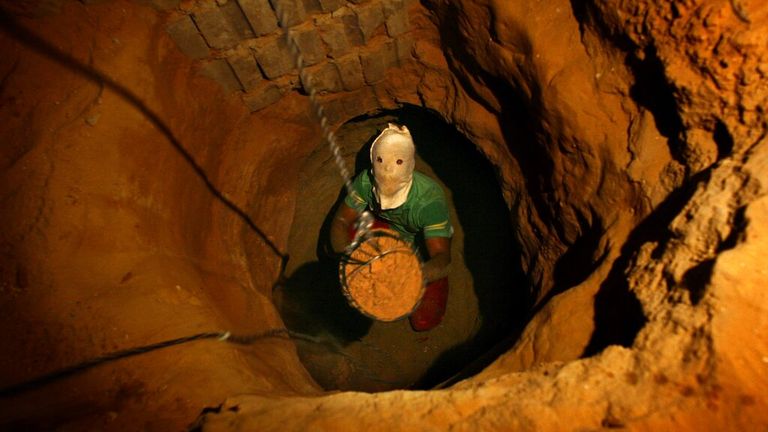One of the biggest challenges facing Israeli forces during their ground operation in Gaza is the huge network of underground tunnels used by Hamas.
Hundreds of kilometres long and up to 80m (262ft) deep, the system is used for various reasons – including carrying out attacks, smuggling in goods and storing weapons.
Israel-Hamas war live: All telecoms go down in Gaza
More than 200 Israeli hostages are also thought to be held within the tunnels.
But they aren’t easy to find, often hidden under buildings of all kinds. So how will the IDF tackle them?
Military expert Chris Morris told Sky News Israeli forces have five options…
1. Sending special forces down
He explained that while Israel doesn’t know the full extent of the tunnel network, it is well-informed and has developed a “special military unit” specifically designed to deal with them.
“They are very well-equipped, they are very well-trained. They have psychological countermeasures, and they have tests to ensure they are mentally robust enough to, if needed, go down into those tunnels,” the military education teaching fellow said.
In the first instance, the IDF would send down unmanned vehicles to check for booby traps and collect robust evidence of activities inside the tunnels, he added.
But sending people down is never going to be the preferred option and Israel will want to avoid “tunnel fighting at all costs”.
Ideally, Israeli forces will try “capping off” the tunnels instead…
2. Destroying entrances into the tunnels.
Mr Morris said Israel could do this by bulldozing them or dropping explosives.
“There are a number of different, very rudimentary, physical ways that you can take them out, but the challenge is identifying them,” he said.
“Simply sealing off the tunnels will have an effect, but ideally you would want to know what’s down there.”
3. Block entrance with foam bombs
A foam bomb or a sponge bomb is a specialised chemical device that releases a burst of expanding foam that quickly hardens.
“This is one of the Israeli wonder weapons,” Mr Morris said. “They drop these cannisters that effectively block off the tunnels.”
The downside for Israel is they are only a short-term solution.
“In the long term, the foam can be removed.”
4. Sewage
Israel’s fourth option could be to copy a move previously made by Egypt to tackle smuggling – throwing sewage down the tunnels.
“It’s a very effective solution,” said Mr Morris. “It would make sense militarily for them to use it should the conditions converge.”
However, it wouldn’t be great “in terms of optics” and it could add to the building humanitarian crisis already spreading across the region.
Read more:
Statues in honour of Yasser Arafat are destroyed in Tulkarm
Families of Israeli hostages start five-day march
5. From the air
The final option is to use sophisticated weapons to target the tunnels from the air, he said.
“Israel has quite a significant inventory of weapons that can be dropped from the air, things like bunker busters, that can penetrate the ground,” Mr Morris explained.
However, even if precision-guided weapons are used, they could cause “a lot of collateral damage”.



